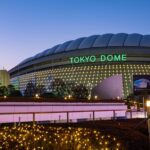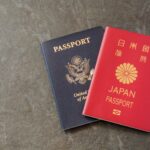Why does Taiwan make so many semiconductors?
Why does Taiwan make so many semiconductors?
Why does Taiwan make all the chips?
Taiwan produces most of the world’s semiconductors.
Why does Taiwan make so many semiconductors? It is well-known that Taiwan produces most of the world’s semiconductors.
To understand why Taiwan produces so many semiconductors, we must first learn about Taiwan Semiconductor Manufacturing Company, Ltd. (TSMC).
TSMC accounts for 53.4% of the world’s semiconductor manufacturing market share. Why was this monster company born in Taiwan and how did it grow to become a global company?
The world’s largest semiconductor contract manufacturer (foundry)
TSMC is the world’s largest semiconductor foundry. It is the world’s first dedicated semiconductor foundry, one of the world’s largest semiconductor companies by market capitalization, and the largest company in Taiwan.
TSMC was founded in 1987 by Morris Chang, and continues to be a leading company in this field.
How did TSMC become the world’s largest semiconductor contract manufacturer?
TSMC is a monster company, accounting for more than half of the world’s semiconductor contract manufacturing.
It has succeeded in accumulating the world’s highest level of manufacturing technology by continuing to contract manufacturing for the world’s top fabless companies.
Morris Chang was born in China in 1931. To escape the war, he moved to Hong Kong with his family in 1948. He then entered Harvard University in 1949 and worked for Texas Instruments from 1958 onward, manufacturing computer components for IBM.
In 1985, the Taiwanese government invited Morris to become the director of the Industrial Technology Research Institute. Taiwan wanted to boost its semiconductor industry in the same way that Japan had, with more than half of the world’s semiconductor manufacturing market share during its heyday.
TSMC is a foundry.
TSMC’s business model is a foundry, but it was Morris Chang who came up with this business model of the contract manufacturing of semiconductors.
He wanted to boost the semiconductor industry so that it became like that of Japan, but Taiwan did not have the technology to design semiconductors at that time. Therefore, Chang arrived at the corporate style of “foundry,” in which the company takes on the task of manufacturing semiconductors that other companies have designed.
Traditionally, a foundry like TSMC, which undertakes only the manufacturing process, was viewed as a mere subcontractor. However, by continuing to undertake manufacturing for the world’s top-class fabless companies, TSMC successfully accumulated world-class manufacturing technology.
This means that manufacturers that need semiconductors requiring advanced technology have no choice but to rely on TSMC. TSMC’s customers are fabless companies that do not have factories. Therefore, TSMC is attaining a stronger position than its customers.
Additionally, TSMC has grown into a global company because of the Taiwanese government’s support.
To revive the Taiwanese economy, which had been damaged by the withdrawal from the UN and the oil shocks of the 1970s, Taiwanese authorities decided to make semiconductors a key industry. As part of this national policy, Chang moved to Taiwan and founded TSMC.
The company’s major customers include Apple, Intel, Qualcomm, AMD, and Nvidia












